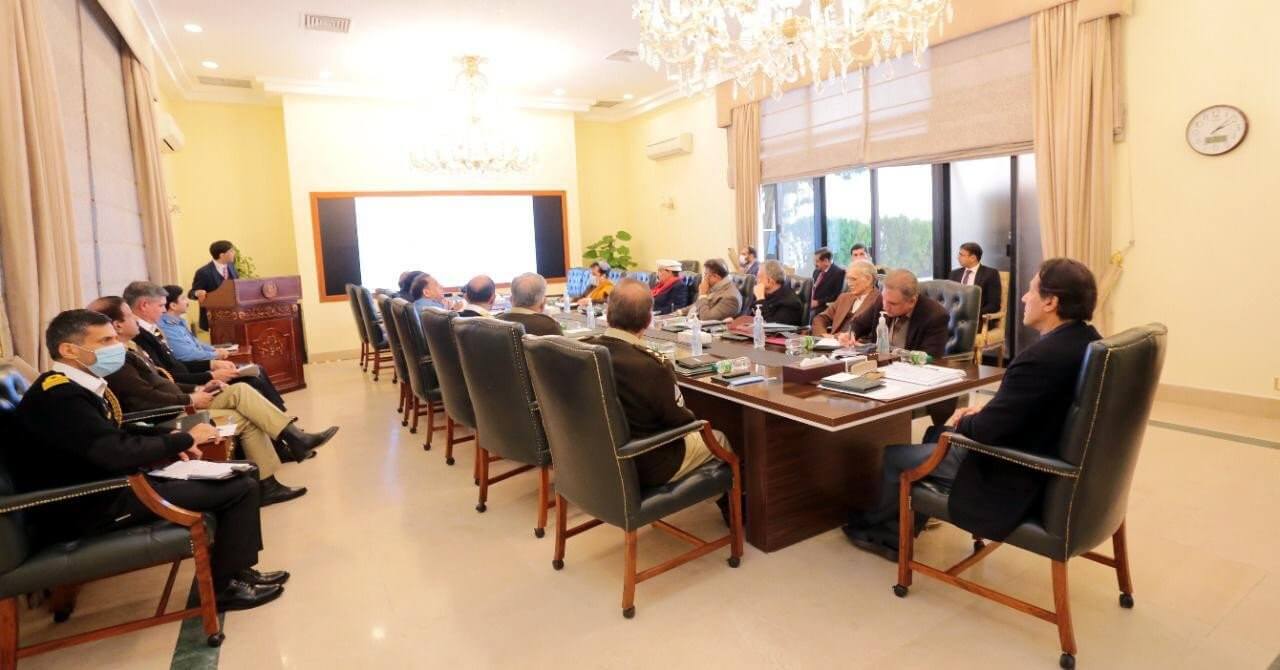On Monday, Pakistan announced its first National Security Policy to ensure economic security. The Pakistani cabinet formally adopted the policy, which spans the 2022-2026 period, on Tuesday.
In preparation for the announcement, Pakistani Information Minister Fawad Chaudhry said that Prime Minister Imran Khan had convened the 36th National Security Council (NSC) meeting, during which the plan was presented for approval. The NSC is an apex body that overlooks all national security matters and is headed by the Prime Minister. It comprises several key ministers of the Cabinet, along with intelligence officials and military chiefs.
Subsequently, the proposal was passed and adopted, making it Pakistan’s first National Security Policy. The document was presented by National Security Adviser (NSA) Moeed Yusuf, who lauded the policy as a “historic” shift to a Comprehensive National Security Framework. He noted that it is a wholesome document that focuses on the Pakistani people’s safety, security, and dignity.
1/5. After the NSC’s endorsement of Pakistan’s first-ever National Security Policy yesterday, the Cabinet has approved it today. It is a truly historic achievement; a citizen-centric comprehensive Nat. Sec. policy with economic security at the core will now be pursued in earnest.
— Moeed W. Yusuf (@YusufMoeed) December 28, 2021
A press release by the Foreign Office said that the document adopts a “citizen-centric approach” to national security and places “economic security” at its “core.” It said, “A stronger economy would create additional resources that would, in turn, be judiciously distributed to further bolster military and human security.”
Meanwhile, Imran Khan stressed the importance of ensuring the security of Pakistani citizens and reassured that the country is capable of countering any internal and external threats. He celebrated the launch of the National Security Policy as a “historic moment” and called on all government members to work towards its successful implementation. Reports suggest that the policy seeks to address traditional and non-traditional threats to the country’s national security, including food, water, terrorism, population growth, and bilateral dealings with major powers of the world. It also emphasises the need to avoid participating in bloc politics.
However, the country’s opposition leaders have criticised the government for ignoring the Parliament while formulating the policy. Pakistan People’s Party leader Farhatullah Babar questioned the authority of a “few uniformed and non-uniformed individuals” to formulate a policy “for an impoverished nation of 220 million armed with nuclear weapons.” He said the document was never debated in the Parliament, rubbishing the government’s claim that all stakeholders were consulted.
Khan has been under the scanner for the deteriorating economic situation in Pakistan. According to The Express Tribune, the Pakistani government’s external debt doubled during Khan’s tenure. The Pakistani rupee has also significantly depreciated by 30.5% during the three years of Khan’s leadership.

